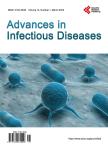Revaccination after Acute Kidney Injury Associated with Prior COVID-19 Vaccination: Case Report
Revaccination after Acute Kidney Injury Associated with Prior COVID-19 Vaccination: Case Report作者机构:Department of Internal Medicine Yarmouth Regional Hospital Yarmouth Canada Department of Medicine Dalhousie University Halifax Canada Department of Internal Medicine University of Health and Allied Sciences Ho Ghana Department of Pathology Dalhousie University Halifax Canada Department of Pathology and Laboratory Medicine Central Zone Nova Scotia Health Halifax Canada
出 版 物:《Advances in Infectious Diseases》 (传染病进展(英文))
年 卷 期:2024年第14卷第1期
页 面:196-205页
学科分类:1002[医学-临床医学] 100210[医学-外科学(含:普外、骨外、泌尿外、胸心外、神外、整形、烧伤、野战外)] 10[医学]
主 题:Covid-19 Vaccination Acute Kidney Injury Proteinuria Haemodialysis Revaccination
摘 要:Background: Acute kidney injury associated with proteinuria has been reported following vaccination against SARS-CoV-2 several times since 2021. Decisions about subsequent revaccination in these patients have been difficult because of the uncertainty of the consequences of doing so, and the absence of publications to help determine whether revaccination may be considered safe or not. Purpose: We present a case report of a 59-year-old Canadian man who developed severe acute kidney injury associated with moderate proteinuria following his first COVID-19 vaccine with the Moderna vaccine (an mRNA vaccine). He required haemodialysis for 2 weeks, which was initiated when his creatinine reached 1002 μmol/l. A kidney biopsy showed changes consistent with acute tubular necrosis. The patient was cautioned that repeat vaccination might result in further kidney injury which might be irreversible. However, he badly wanted to attempt a second COVID-19 vaccination, to facilitate a family vacation across several countries in Europe, at a time when travel restrictions were in place in many countries for persons who had not completed a course of vaccines. Method: Following deliberations, the patient chose to try a different type of Covid-19 vaccine. On this occasion, he was vaccinated with the Novavax vaccine (a subunit COVID-19 vaccine). Following this, close monitoring of his urine to detect proteinuria and blood testing for acute kidney injury were carried out on days 1, 3, 7, and 60 after vaccination. Furthermore, a year after his repeat vaccination, his kidney function and urinalysis were again assessed. Result and Conclusions: The patient did not develop acute kidney injury or worsening proteinuria following repeat vaccination. It remains unclear if acute kidney injury with proteinuria is caused by Covid-19 vaccination, or simply an incidental association. This case report suggests that it is may be reasonable for patients with acute kidney injury after COVID-19 vaccination to



